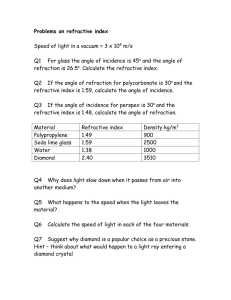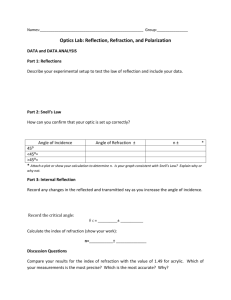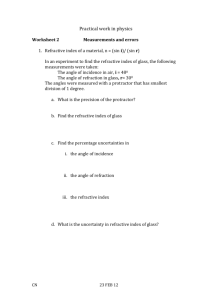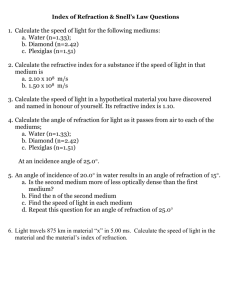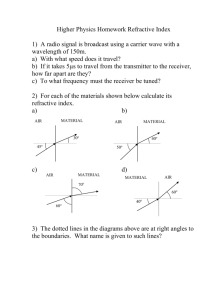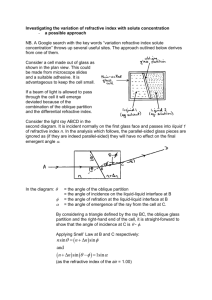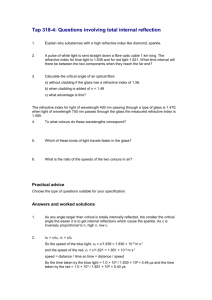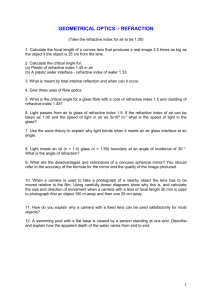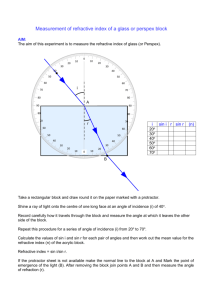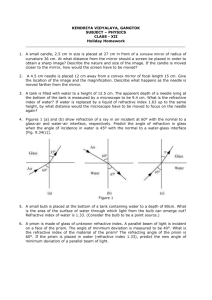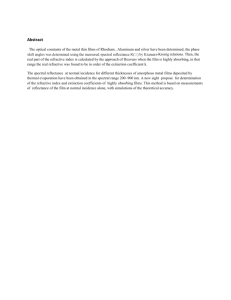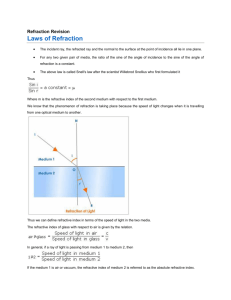Critical Angle and TIF
advertisement
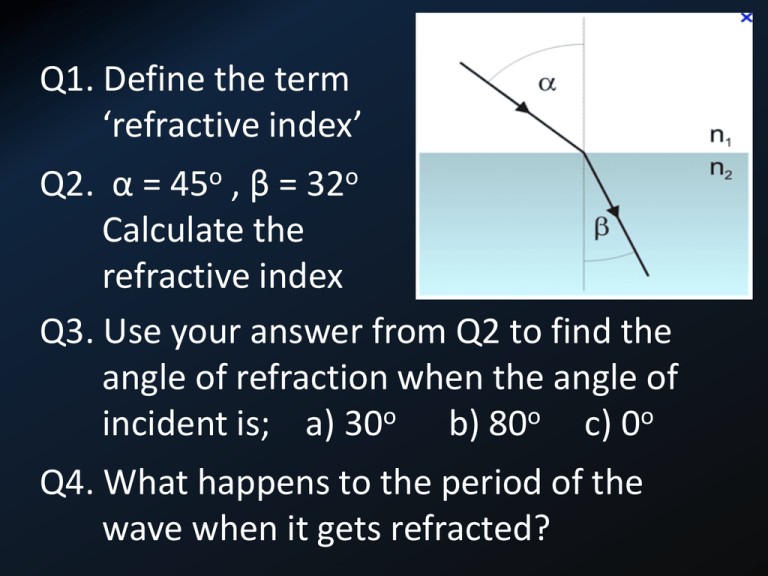
Q1. Define the term ‘refractive index’ Q2. α = 45o , β = 32o Calculate the refractive index Q3. Use your answer from Q2 to find the angle of refraction when the angle of incident is; a) 30o b) 80o c) 0o Q4. What happens to the period of the wave when it gets refracted? Medium Air Water (liquid) Water (ice) Vegetable Oil Silica (quartz) Human Cornea Flint Glass Diamond Glycerol Absolute Refractive Index 1.00 1.33 1.31 1.46 1.46 1.38 1.65 2.42 1.47 n1 , n2 , n3 , … = absolute refractive index 1n2 = relative refractive index where: n2 n 1 2 n1 Example: If light travels from water to diamond, what would be the relative refractive index? Try this! Refractive index of water = 1.33 Refractive index of air = 1.00 Light travels from water into air Angle of incidence = 75o Angle of refraction = ??? Critical Angle The angle of incidence where light entering an optically less dense medium refracts at right angles Total Internal Reflection Where light is totally reflected instead of being refracted. Occurs when the angle of incidence is greater than the critical angle.
